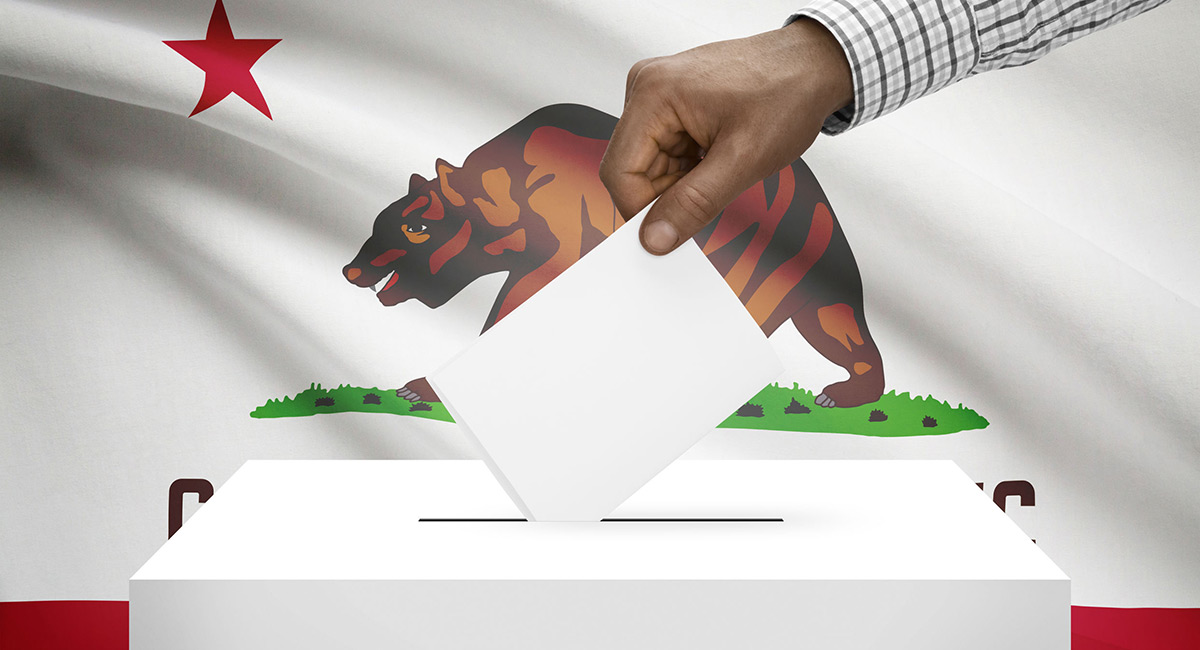Three propositions on California’s November ballot would violate our constitutional right to private property; a fourth would violate the individual’s right to nondiscrimination.
The constitutional right to private property is protected in at least eight places in the U.S. Constitution. I cite here three: the right to privacy in our possessions (Fourth Amendment); the right to private property (Fifth Amendment); and the right to make contracts (Article I, Section 10). The right to nondiscrimination is cited in the 14th Amendment.
Let us now apply these rights to the four ballot propositions.
Proposition 15 would overturn Proposition 13’s cap on commercial and industrial property taxes. The owner or owners would still own their property but would suffer financially through increased taxes. This increase certainly violates the intent of the Fifth Amendment, which reads in part: the individual shall not be “deprived of life, liberty, or property, without due process of law; nor shall private property be taken for public use, without just compensation.” Proposition 15 does not provide “just compensation”; in fact, it punishes owners through additional taxes, which amounts to a kind of taking.
Proposition 15 is not “due process”; it is a political effort for increased redistribution of income.
Proposition 16 would end the state’s ban on affirmative action. That violates the 14th Amendment, which states that the government shall not “deny to any person ... the equal protection of the laws.” We should all, whatever our individual traits, be treated equally. This clause means we cannot discriminate against minorities, but by the same logic, it also means we cannot discriminate in favor of minorities. A constitutional wrong does not make a constitutional right.
Proposition 21 would impose rent control, which cities would implement. This imposition is way out of bounds: cities do not own private property — and such is control of “property without due process of law.” This is merely an effort at political control of a private property.
Proposition 22 would restore private employment. It seeks to restore independent contractors rather than mandate that they become public employees. This political movement to get rid of private contractors and force them to become public employees is also way out of bounds, violating the Constitution in several ways. For one, it would violate the right to make contracts. Article 1, Section 10 mandates that there shall be no “law impairing the obligations of contracts.” If an Uber driver wants to enter into a mutually agreed-upon contract with a passenger, i.e., payment in exchange for transportation, that private contract is protected by the Constitution.
It gets worse. The current AB-5 law mandates that freelance writers, journalists, and photographers are “employees,” not independent contractors. This law violates their First Amendment right to free speech, their 14th Amendment right to equal protection, and their Fifth Amendment right to due process. A lawsuit challenging AB-5 has been filed in the Ninth Circuit Court of Appeals.
I have often wondered why politicians violate the Constitution. I can think of three possibilities. One, they don’t know that such measures are unconstitutional — though it's difficult to imagine that their legal staffs don’t know it. Two, they don’t care. Three, they do know it but believe that the Constitution is wrong.
We can now understand why Benjamin Franklin when asked at the Constitutional Convention, ‘What have we wrought?’ replied, “A Republic, if you can keep it.”








